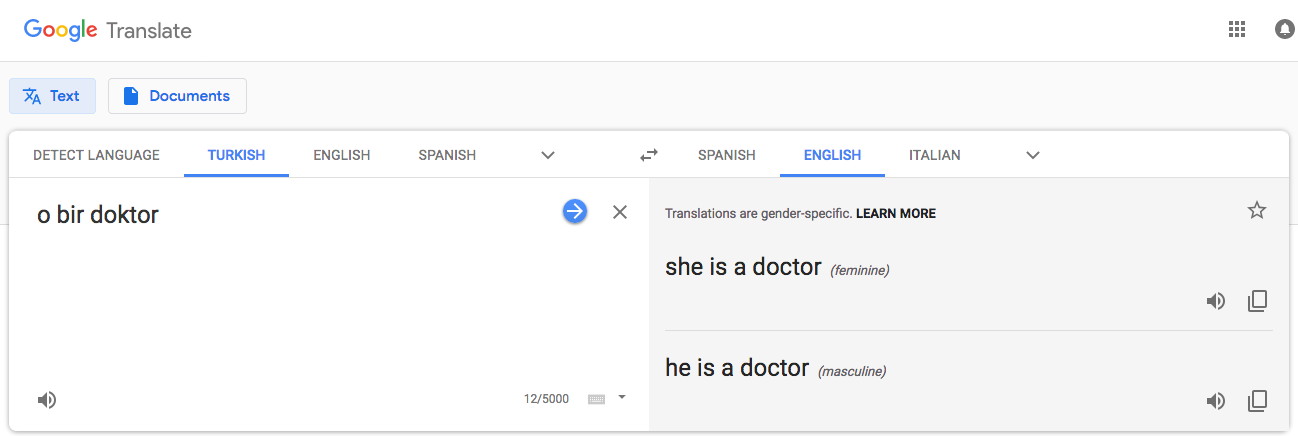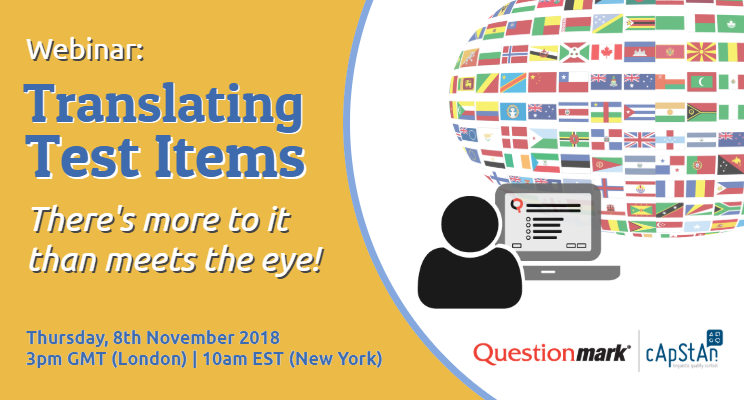Category Archives: Translation technology

Should professional translators shun machine translation?
by Steve Dept, cApStAn CEO Beyond the AI hype and controversial reports about automatic translation achieving parity with human translation, neural machine translation (NMT) has undoubtedly made spectacular progress in the last three years. Should professional translators resist or should they use it? Machine translation software has been around for a long time. In the …
“Should professional translators shun machine translation?”
Read More
Skirting online censorship in China by “translating” a banned article into Morse, hexadecimal code, emoji and elvish language
Pisana Ferrari – cApStAn Ambassador to the Global Village People across China have been very creative in past weeks in finding ways to get around the ban on an article that was critical of how the government handled the coronavirus epidemic. The article, written by Ai Fen, director of the emergency department at a hospital …
Read More
Could post-edited machine translation lead to an impoverishment of the target language?
by Pisana Ferrari – cApStAn Ambassador to the Global Village Prof. Antonio Toral, from the University of Groningen, has recently published a study comparing unaided human translation (HT) to post-edited machine translation, (PEMT). (1) Whilst acknowledging that PE is very useful in terms of productivity, Toral flags a potential issue. His findings indicate that PEMT …
“Could post-edited machine translation lead to an impoverishment of the target language?”
Read More
Should Wikipedia consider banning machine translations on its platform if there is no human supervision?
by Pisana Ferrari – cApStAn Ambassador to the Global Village Content translation tools on Wikipedia allow editors to generate a preview of a new article based on an automated translation from another edition. Used correctly, these tools can save valuable time for editors, in particular those building out understaffed language editions – but when it …
Read More
Working at the intersection of linguistics and artificial intelligence to advance machine translation performance
by Pisana Ferrari – cApStAn Ambassador to the Global Village Chris Callison-Burch –associate professor in Computer and Information Science, University of Pennsylvania — has in past years developed novel cost- and time-saving methods to translate languages, including crowdsourcing and images. In this recent interview for “Medium” he shares a new translation method which is very …
Read More
Promising research on machine translation for low-resource languages
by Pisana Ferrari – cApStAn Ambassador to the Global Village Slator has been monitoring research related to neural machine translation (NMT) for a number of years. They have recently said that research output has consistently increased since 2014 and more than doubled in 2018 compared to 2017. They base their findings on the number of papers …
“Promising research on machine translation for low-resource languages”
Read More
A Sense of Direction
by Steve Dept – cApStAn partner cApStAn linguistic quality control is a brand name (and a registered trademark) for a holistic approach to translation and adaptation of assessments and surveys; cApStAn also stands for a certain lifestyle and spirit: “Excellence among friends”, as one of the founding partners likes to put it. When we take …
Read More
The future of the translation eco-system: should it be “fixed” or reinvented?
by Pisana Ferrari – cApStAn Ambassador to the Global Village Great panel of speakers and interesting discussions for the webinar organised by TAUS on 11 December on how to “fix” the current translation eco-system, in particular the “knowledge”, “operational” and “data” gaps. The webinar followed up on a TAUS blog entry on the same topic …
“The future of the translation eco-system: should it be “fixed” or reinvented?”
Read More
Gender bias in machine translation
by Pisana Ferrari – cApStAn Ambassador to the Global Village Do the footprints of stereotyping follow us in online environments? Yes, according to cApStAn linguist Emel Ince, and all the more so in the case of “gender-neutral” languages such as her own, Turkish, where there is no male or female distinction in the third person, and …
“Gender bias in machine translation”
Read More
Automation anxiety and translators
by Pisana Ferrari – cApStAn Ambassador to the Global Village Here is an interesting take on “automation anxiety” among translators. The author’s approach was to “crawl” content from forum postings and translator blogs in order to compile “a corpus of professional discourses”. He says that, despite the wealth of studies on the issue, most research …
“Automation anxiety and translators”
Read More
Announcing the joint Questionmark/cApStAn webinar on assessment localization – 8 Nov
by Pisana Ferrari – cApStAn Ambassador to the Global Village Globalization and innovative web technologies have removed geographic boundaries and opened new opportunities for awarding bodies, technology certification programs and credentialing organizations. However, with these opportunities come new challenges: How do you localize items and assessments so they will reliably measure knowledge, skills and abilities …
“Announcing the joint Questionmark/cApStAn webinar on assessment localization – 8 Nov”
Read More
Is machine translation taking over from English as the global communication language?
by Pisana Ferrari – cApStAn Ambassador to the Global Village At the recent TAUS webinar on “geo-linguistic shifts” two leading experts in the field, Lane Green and Nicholas Ostler (see bios below), discussed whether machine translation could one day replace English as the world’s “lingua franca”. The first TAUS debate on this topic between Green …
“Is machine translation taking over from English as the global communication language?”
Read More